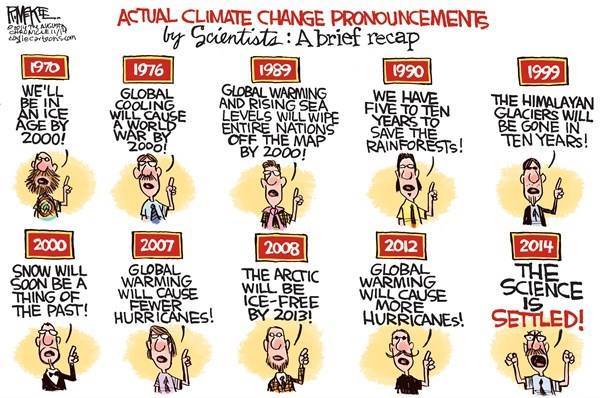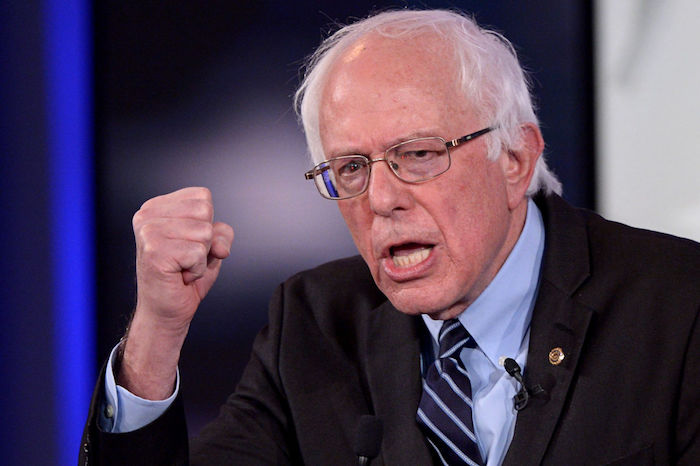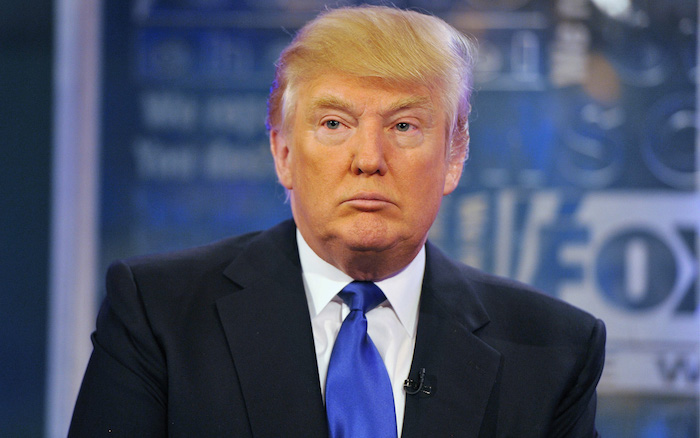US-Created System In Iraq Is Collapsing: Protesters Storm Parliament, State of Emergency Declared4/30/2016
By Tyler Durden
Less than two years ago, the US set up another puppet government in the mid-east this time in the state of Iraq when following substantial US pressure, on August 14, 2014 then prime minister al-Maliki agreed to stepped down and be replaced with Haider al-Abadi. Today, the regime is in chaos and the system set up in Iraq by the US is collapsing when protesters loyal to popular Shiite cleric Muqtada al-Sadr breached the heavily fortified Green Zone, home to government buildings and foreign embassies, and stormed the Iraqi parliament, forcing MPs to flee and resulting in a state of emergency being declared for all of Baghdad. As can be seen in the above photo (and live webcast), hundreds of demonstrators occupied the country's parliament. Video from inside the building showed jubilant crowds waving Iraqi flags and shouting "peaceful, peaceful." Supporters of Sadr, whose fighters once controlled swaths of Baghdad and helped defend the capital from ISIS, have been demonstrating for weeks at the gates of the Green Zone, responding to their leader's call to pressure the government to reform. Cited by NBC, Brig. Gen. Saad Mann, a spokesman for the Iraqi military, said that Iraq security authorities have declared a state of emergency in Baghdad. "All gates that lead to Baghdad are closed. No one is allowed to enter into Baghdad, only those who want to leave Baghdad can do so." "There is no evacuation for the American staff inside the American embassy," he said. A U.S. official who spoke on condition of anonymity said the American Embassy in Baghdad was not being evacuated, contrary to local reports. We expect that should the pro-US government fall, this will promptly change. Security forces responsible for guarding the entrance to the area were not able to stop the demonstrators without opening fire so they let them in, the security source told NBC News. As a result, the protest is mostly peaceful for now. This article was originally published at Zero Hedge.
By Ryan McMaken
In a more civilized age — that is, during the 1840s — reducing the price of food for ordinary people was seen as a good thing. Nowadays, though, increasing the price of food in the name of "climate sustainability" is de rigueur. The UK Independent reports: Denmark is considering proposals to introduce a tax on red meat, after a government think tank came to the conclusion that “climate change is an ethical problem”.
One wonders exactly what they mean by "an ethical problem," but it's fairly clear from the context that the phrase is merely code for "problem we elites have decided takes precedence over all other problems."
Moreover, if such regulations really are adopted, it will necessitate the creation of an entire government bureaucracy to decide what foods have an acceptable level of "climate impact" and which do not. Government agents will no doubt be well paid to write reports as to just how much the price of food X shall be taxed to reflect its climate sustainability or lack thereof. There will be rankings, white papers, commissions, and propaganda campaigns all in the name of dictating an "ethical diet." In a more sane time or place, such micro-management of the diets of of human beings would be seen as absurd, but not in the age of endlessly expanding government power in the name of protecting the climatic status quo. Advocates of New Taxes Will Pretend the Costs Don't Matter And what will the cost be to ordinary people? Given the communal and ritual importance of food in human culture, it's certainly not zero. Nor can the subjective valuations of billions of human beings simply be disregarded. Some people prefer to obtain their nutrition from meat. Others prefer to obtain nutrition from other sources. Some people build religious and cultural celebrations around certain types of foods. If the new food taxes are implemented, these everyday aspects of life — activities that are at the very center of human culture and life — will be further limited, with the most impoverished members of society suffering most of all. "Well, it's just red meat," some might say. But, the food tax is merely a small part of a global effort by political elites to tighten the noose around ordinary people who are being told that all the most basic luxuries in life are now eco-terrorism. "It's just red meat" sounds an awful lot like "it's just an small tax hike" as if there were no existing tax burden onto which the most recent proposal is to be heaped. Moreover, the planners of the food tax have already made it clear that nothing is safe. All foods are to ranked, they openly acknowledge, as will all aspects of human life such as travel, recreation, an living conditions. You like weekend trips to the seaside? Too bad, that requires fossil fuels. You want an affordable house? Too bad, you'll only be allowed to build a house with high-priced triple-paned windows and other "energy-efficient" amenities. You want to eat a Christmas ham? Tough luck, the carbon footprint is too big. Oh, don't worry, the billionaires and politicians will still be able to afford their private jets and their luxurious meals. For the rest of humanity, though, it's important to confront "the ethical problem." Note that there is never any acknowledged cost to weigh the effects of food taxes and carbon taxes against the presumed advantages of the taxes. The cost to society of increasing the costs of food, transportation, and housing are very real, nor can they be calculated, given the nearly infinite number of ways that different individuals value travel, food, and a nearly endless list of other amenities. That is, the true costs cannot be known. This is always the central problem of all public policy, of course, and of government planning in general. There is no way to predict how countless unique human beings with their unique ways of valuing everything will be impacted by a new regulation or law. As F.A. Hayek explained in The Fatal Conceit, the central problem of government planning remains the fact that "what cannot be known cannot be planned." Even worse is the fact that there is a steadfast refusal to consider economics at all in considering the effects of climate-control laws. This is demonstrated in the very words of the activists themselves when they emphasize that global warming is to be treated only as an "ethical problem." The words are used as a sort of talisman to absolve the advocates from having to pay attention to the boring 'ol warnings of the economists who recognize the unpleasant realities of opportunity cost and scarcity. The consequences of such an attitude as often less than ideal, which is why Hayek went on to observe: "It is a betrayal of concern for others, then, to theorise about the 'just society' without carefully considering the economic consequences of implementing such views." The Alleged Benefits of Climate Regulations Can't Be Calculated, Either Don't expect any such cost-benefit analysis to be forthcoming, though. The global warming debate has never progressed beyond the demand that everyone cave to the latest anti-global warming proposal, or face armageddon. As I noted in May 2015: This “Follow Us or Die!” routine is a propagandist’s dream of course, but in real life, where more rational heads — on occasion — prevail, the costs of any proposed government action must be considered against the costs of the alternatives. Moreover, the burden of proof is on those who wish to use government, since their plan involves using the violence of the state to carry out their proposed mandates.
Under normal circumstances, any rational person would immediately see this intellectual modus operandi as the work of dangerous religious zealots. But among modern advocates for global climate planning, no such dissent is to be tolerated, and any rational consideration of real costs and benefits are to glossed over and militantly ignored.
In many ways, this anti-intellectual refusal to discuss the down side of a public policy stems from the fact that many advocates of the food tax will be unable to actually demonstrate any measurable benefits. This is because most of the "benefits" are really just speculations based on computer models. Unlike ordinary science, this politicized offshoot of climate science involves no actual observations, but are based on hypothetical models. Moreover, even if the model builders could accurately predict the precise effects of global warming in the distant future, they'd then need to illustrate the specific benefits of a specific food tax, or tax on air travel, or a regulation on housing production. No such precision exists, so no "benefits" can be shown. And we're left again with Hayek's calculation problem. In fact, the entire endeavor is based on a mystical belief that legislatures can pass laws and the stated goal with be magically attained thanks to the power of wishful thinking.The far more likely reality — that the government planners are actually blindly groping for a solution — must be steadfastly denied. Thus, any challenge to the food tax and similar measures will meet the usual response: "Follow us or die in the coming climate apocalypse." That's an interesting position, but it has no place in any rational political discussion. This article was originally published at The Mises Institute.
By Chris Rossini
If Sanders said it once, he said it a thousand times. "Corporate Greed" is to blame for the plight of the average American. Big shot CEO's treat their laborers like dirt. They're always focused on the bottom line. They fail to "put people over profits". Now the news breaks that Bernie himself will be laying off hundreds of campaign workers across the country. Can you believe it? How ruthless! Oh sure, Sanders tries to explain it rationally: “We want to win as many delegates as we can, so we do not need workers now in states around the country. We don’t need people right now in Connecticut. That election is over. We don’t need them in Maryland. So what we are going to do is allocate our resources to the 14 contests that remain, and that means that we are going to be cutting back on staff.”
Blah...blah...blah...
How dare he try to pull the old corporate trick that resources are scarce? When was the last time he opened a government schoolbook? Resources are not scarce! Furthermore, it wasn't Bernie that got all those votes and delegates. It was his hard-working campaign staff! It was their blood, sweat and tears. They should be the ones reaping the benefits of their work. Nope. Instead the benefits go right to the top. The hard workers get pink slips. It's not like Bernie doesn't have the money. Here's a man, who is supposedly "getting money out of politics," that is literally swimming in cash! The Washington Post tells us that: "Bernie Sanders is outraising, outspending and outadvertising Hillary Clinton’s campaign". Sanders has all this money and he's "cutting back" on his staff? Talk about being used and abused. Greedy Bernie....very greedy. Walk the talk. Keep all your staffers. They're tired of the 1% getting all the benefits. Give them "access" to jobs. It is their "right" to work for you, and you have a "social responsibility" to make sure they stay employed. Don't "discriminate" between staffers in one state versus another. They are all "equal" in value to your campaign. And finally, you firing campaign staffers will certainly contribute to climate change. Don't do it Bernie. Think about the children. By Daniel McAdams
As candidate Donald Trump prepares his foreign affairs coming out speech tomorrow, we might hope for the best (a conversion on the proverbial -- and perhaps literal -- road to Damascus to solid non-interventionism). But sadly we should expect the worst. Whenever a politician tells us he is “getting serious” about foreign policy, it means he is going to outline all the places in the world where the US government and its military must intervene to “protect our interests.” No politician who craves power – and that means nearly no politician – is going to take to the stage and do what 2012 presidential candidate Ron Paul did: tell people “I don't want to run your life, I don't know how to run your life, I don't have the authority to run your life, and the Constitution doesn't permit me to run your life.” Trump is no expert on foreign affairs. That is certain but it is also forgivable in a candidate. However it means that he will have to turn to the “experts” help him develop his policy and write his speech. Who are the experts? Those same Washington neocons who have botched every single foreign policy action they have gotten their hands on. The “experts” have no incentive to say, “we should stay out of this conflict,” because doing so means their services are no longer needed. Even beltway “libertarians” get in on the game – jetting off to places like Iraq at taxpayer expense to help them write a new constitution (to be as ignored as ours is). What to expect from Trump’s big speech, then? A main course of Washington conventional wisdom wrapped up in a good helping of colorful, populist rhetoric. Hopefully this is mistaken, but taking from his comments just five years ago as the decision was being made to attack Libya, we should not be too optimistic. As you will see in the below video (h/t Target Liberty), Trump repeats the mainstream interventionist line about Libya which we know now to be a total fabrication. “Gaddafi is killing thousands of people,” he says, “nobody knows how many. …it’s a carnage. You talk about things that have happened in history, this could be one of the worst.” This of course was not the case. As Gaddafi himself tried to tell Obama and Tony Blair and anyone who would listen, he was fighting an Islamist extremist insurgency in his country and any killing was being done against al-Qaeda, our supposed enemy. How do we know he was telling the truth? Because now that “we came, we saw, he died,” the country is over-run with al-Qaeda and now is a major headquarters for ISIS! So Trump’s problem on foreign policy is that his instinct is to accept the conventional wisdom, which is consistently wrong, and to shoot from the hip (endorse US military action) rather than to soberly assess whether such action is critical to the defense of the United States. He may think that is what the people want to hear, but judging from polls he may be very much misreading the sentiment of a war-weary American people. By Chris Rossini
Imagine you're at a baseball card show, or a comic book show. You're walking around, taking a look at what is being offered. You may buy something. You many not. In any case, you're just trying to enjoy your day off immersed in one of your hobbies. Then something weird happens. A bearded professor walks into the ballroom with a megaphone. He claims to be from an Ivy League school and he hysterically shouts that trade must "pick up" at the show. Get those transactions moving! If trade "slows down" it'll be horrible for "the economy". You naturally look at the professor as if he were nuts. Everyone would ignore him and go about what they were doing before he gave his two cents over the megaphone. What business is it of his? If you buy something, or don't buy something, that's your decision. You're not concerned with some abstraction known as "the economy". You don't live for "the economy." You live your life peacefully, trying to make the best decisions that you can. You may want to save your money and either buy something else at another place, or save it for another day altogether. The professor notices that no one cares about his unsolicited advice and grabs the megaphone again. He shouts that you should not save your money. When you do, you're actually hurting the economy. Again, you look at the guy as if he has a screw loose. There he goes with that "economy" talk again. What does he think the economy is, a mechanical machine? Does he fancy himself as the owner of this fictional machine? Am I a cog in one of the wheels? In reality, the economy is nothing but an abstraction. It's not a thing. It consists of millions and billions of individual transactions. Each one is made by individual people and based on each particular person's value scale at the time of the transaction. Because the circumstances of life are forever changing, so are everyone's value scales. You could've went to the baseball card show with the intention of spending $500 on your favorite player's rookie card. But just as you were about to hand over the money, your cell phone rings. Your wife tells you that the air conditioner died. In a split second, your value scales changed. No more rookie card. The AC needs to be fixed. Life is largely unpredictable. There are so many variables involved in every moment of the day, we can't know with certainty as to what is coming next. Because of this unpredictability, we may choose to sock away some money for a rainy day. What if the car breaks down next? What if one of the kids get sick? This nutty professor is telling everyone to spend, spend, spend, and not to save anything. Why doesn't he mind his own business? Why doesn't he concentrate on his own decisions? Who's he to tell people what to do with their property? The professor walks out of the ballroom dismayed. No one listened to his advice. People went about their day, and he ended up being just an odd blip in their day. Not content with people disobeying his commands, the professor goes back home and starts typing on his computer. He writes a five hundred word essay for The Government Times on why central planners at the Federal Reserve should artificially suppress interest rates. "If those recalcitrant people want to save their money, let's see them do it with interest rates at 0%," he chortles to himself. "Better yet," the professor thinks, "the central planners should print trillions of dollars that the government can spend on wars and welfare. That'll keep the economy moving for sure." The central planners (and government) love this kind of advice. The professor gives them cover. He provides the excuses for them to do what they want to do anyway! What a guy! Sadly, everyone else is put into a bind. Everyone is now faced with an artificial situation. You can't keep money in the bank because interest rates are 0%. Even if you were to put money under the mattress, it continually loses purchasing power because trillions of dollars are being printed. What kind of bizarro nonsense is this? The nutty professor and central planners have turned life into their plaything. Everyone is just a toy in their freak show experiment. People spend themselves into unmanageable debt. Government spends itself into really unmanageable debt. People have nothing for a rainy day. Government creates the rainy days with its relentless interventions. The nutty professors come up with the most bizarre excuses to keep the unsustainable going: "Debt doesn't matter." .... "We owe it to ourselves." What??? (!!!) Whenever the artificial takes over, the return to reality is always painful. We all know what it's like to be drunk as a skunk. The return to seeing the world as it is the next day is a painful one. We can wish the hangover away, but the die was cast when the Jack Daniels was poured. There's no escaping the pain. The professor would say: "Well then keep drinking. Then you never have to face the hangover." What a nut. By Chris Rossini
Donald Trump had a rally today in Pennsylvania, and he once again showed terrible flaws in his economic understanding. Now, your initial reaction to that statement may be, "Hey, but Trump is a billionaire. How can a billionaire be ignorant in economics?" Ahh...but money is definitely not a measure of economic coherence. If it were, there would be nothing for us to worry about. We could put the very wealthy Hillary Clinton on the throne and let her get to work. Does that sound like a good idea? One can be very good at earning money and satisfying consumer desires in the voluntary sector, but we're talking about power here. We're talking about granting power to Trump that no human being should have. We no longer have the relatively weak presidents of yesteryear, when one could walk up to the president's door and knock on it. Those days are no more. Today we have presidents that mess with (and subsequently mess up) hundreds of millions of lives. So Trump's billions are meaningless when it comes to him using power to implement his very dangerous ideas. Trump said today in Pennsylvania: "We are not going to let foreign countries steal our companies, and destroy our jobs." First of all, that entire statement is laced with collectivism. Trump throws every individual in this country into the word "We" and then (of course) places himself at the helm. There is no collective "We". It's a complete fiction. There are only individuals. As individuals, each of us has our own particular skill set. We then individually make employment contracts with other individuals. Everyone involved is buying an selling something.
It's a contract! Two parties that are each buying and selling something. You don't "own" the job if the employer hires you.
The employer is then free to form a contract with someone else, as are you. Trump says that "foreign countries steal our companies". That's complete nonsense! "We" don't own companies. The U.S. government doesn't own companies. No one is stealing anything. Government can (and certainly does) make it impossible for companies to function in the United States. There are so many rules and regulations that companies throw up their hands and look for another place to do business. Other countries are obviously more attractive. They don't make companies jump through thousands of flaming hoops. Naturally, businesses will setup shop there. Why wouldn't they? Are we supposed to think that everyone is a masochist? Everyone is just supposed to sit there and take it as government knocks them over the head? Trump (in order to get votes, of course) tells the average Joe that foreign countries are "stealing" these companies. Then he adds insult to injury by saying that this non-existent theft "destroys our jobs". Again, no one "owns" a job. When you make a contract with an employer, seldom is it a "lifetime" contract. Life is about constant and continuous change. We naturally yearn for homeostasis and security, and would love for those paychecks to be permanent, but they're not. Trump should drop the protectionist rhetoric. It would be a complete disaster if his ideas were ever implemented. Trump should instead say something like this at his rallies: "As President, I will do my best to make it attractive for businesses to once again operate in the United States. I will slash the red tape, abolish the ridiculous bureaucracy that grinds everything to a halt. I will cut, eliminate and dump government's endless meddling in every American's economic life. Everyone who wants a job, or to start a business, will no longer have government standing in the way." Sadly, that kind of thinking is way out of Trump's league at the present moment. Fortunately for him (and those who believe him) it doesn't cost billions to learn economics. |
Archives
July 2024
|












 RSS Feed
RSS Feed



